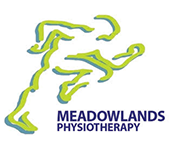Recovering from a Concussion
A traumatic brain injury can change your life in an instant.
Safe to say we all agree on that statement, but not everyone thinks of a concussion as a traumatic brain injury. Concussions, though, certainly qualify. They may cause physical, mental, and emotional difficulties in both the short and long term.
Concussion rehab helps manage these long-term effects. So if you or a loved one becomes concussed consider exploring concussion therapy.
The 6 Steps to Concussion Rehab for Athletes
- No activity. Concussion rehab begins with complete rest from work, school, and play. This includes things like reading, texting, and television.
- Light exercise. Once you’re ready some light activity, like walking, swimming, and stationary biking, is beneficial.
- Sport-specific exercise. When ready, you can begin to train for specific sports, but you must avoid any head contact.
- Non-contact drills. These drills can be more vigorous. However, you still need to avoid contact that could risk re-injury.
- Full-contact practice. Once you receive medical clearance you can begin training in full-contact scenarios.
- Return to full gameplay with contact.
Depending on individual circumstances, the absolute soonest an athlete should return to play is one week. Children and young people are more susceptible to concussions, so a longer hiatus is advisable. However, it’s critical to receive medical clearance before returning to the game after a concussion.
How Physiotherapists Contribute to Your Recovery
A physiotherapist will create a customized concussion rehab program after assessing your symptoms. Everyone experiences concussions differently, so there are a variety of types of treatments your physiotherapists might recommend for a concussion rehab plan.
Vestibular Physical Therapy
This branch of physiotherapy deals with the inner ear and its connection to the brain. It’s valuable in concussion rehab because it aids concussion sufferers in their efforts to regain balance and reduce dizziness.
An experienced vestibular physiotherapist can perform special treatments or introduce you to at-home exercises, so that you can extend the extent of your concussion rehab.
Reducing Headaches
Headaches are a common complaint, so physiotherapists often include ways to ease the pain and limit the frequency of headaches when designing your concussion rehab plan. Specialized massage techniques, stretches, acupuncture, and eye exercises are some of the most effective methods.
Regaining Strength and Endurance
Rest is essential to recovering from a concussion, but prolonged inactivity can lead to the weakening of some muscles. Physiotherapists work with you to bounce back and keep you safe by teaching you how to avoid aggravating your concussion.
Helping You Return to Sports and Everyday Activities
Complete rest is necessary at the beginning of your concussion rehabilitation because overloading your brain with tasks can interfere with the healing process. But once your concussion rehabilitation advances, a physiotherapist will help you incorporate everyday activities back into your lifestyle.
Having patience is key to managing your concussion. Without it, you risk rushing through your concussion rehab and slowing your own recovery process. Working with an experienced physiotherapist makes it easier to stay disciplined and stick to your concussion rehab plan. When it comes to your brain it’s important not to rush through the recovery process —you want to recover and stay recovered.

